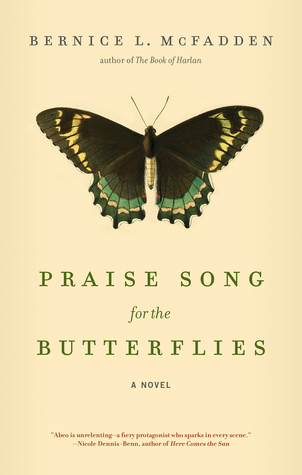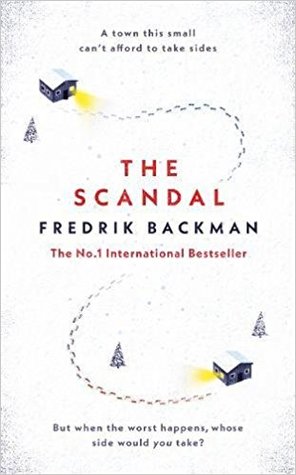 I first heard about Bernice L. McFadden’s tenth novel, Praise Song for the Butterflies, when it was longlisted for the 2019 Women’s Prize for Fiction. I had read three other novels on that long list, each of which I considered worthy of their place. If they’re the bench mark then this will be a safe bet, too, I thought.
I first heard about Bernice L. McFadden’s tenth novel, Praise Song for the Butterflies, when it was longlisted for the 2019 Women’s Prize for Fiction. I had read three other novels on that long list, each of which I considered worthy of their place. If they’re the bench mark then this will be a safe bet, too, I thought.
In that assumption I was wrong.
The opening scenes are gripping, the story is compelling, the writing unpretentious.
The story is a good one, potentially a great one. It shines a light on the little known abusive practice of trokosi, the ritualised enslavement of young girls in parts of Africa. Abeo, the protagonist is nine years old when things begin to unravel for her parents. Under pressure ancient superstitions and traditions are promoted by her grandmother as a solution to the family ills and Abeo is taken to a religious shrine. During the next fifteen years she is used and abused in every way. The psychological wound inflicted on her by the abandonment is as great as the torture she endures for all those years. Gradually her sense of self is eroded and the murderous outcome with which the novel opens seems understandable.
From that opening scene, McFadden takes us back to Abeo’s early years as layer by layer she shows us how such a terrible act came about. As I read the story, I wondered what will happen to Abeo as a result of the murder. Will she be dealt with leniently, will there be some sort of redemptive ending, or will it be a tragedy for all concerned.
I was gripped. I tore through the story until the arrival of Taylor Adams. From that point the novel began to lose some of its lustre. The rationale behind Taylor’s entrance, and her subsequent role as rescuer and healer of Abeo, is well constructed and believeable. But for me with her arrival the novel teetered dangerously close to the old trope of western people rescuing African people from themselves. How much more powerful this novel might have been if this had been handled a little differently, if the people of Ukemby (the fictional African country Bernice L. McFadden created for the purposes of the story ) had had more agency themselves.
For me, in this aspect, Praise Song for the Butterflies read too much like well to do Americans swooping in to save the situation.
She had made a lot of money in her position as a director at IBM, but money was overrated, and it hadn’t brought her love or fulfillment. So what was she doing with herself besides working toward an early grave? She alway knew there was more to life than met the eye, but she never in a million years thought that more would be thousands of miles away in Ukemby.
So you’re just going to move to Africa? Just like that?” Allen asked.
“Poeple do it every day.”
“It’s all so sudden. What brought this on?”
“Mahatma Gandhi said something like be the change you wish to see in the world, and I’m going to do just that.” (P156)
It is the agency of the characters, or in this case, the lack of it, which makes the difference for me. In The Death of Murat Idrissi, for example, it’s the agency of the two friends, flimsy and ill-fated though it is, which makes that novel stand out for me.
In Praise Song for the Butterflies it wasn’t that Taylor Adam and her associates were obnoxious, or insensitive. Not at all. I think McFadden dealt with their kind altruism very well. It’s just that in choosing this plot option, for me something else, something fuller, potentially more engaging was lost.
Overall, I might have been more kindly disposed towards this plot development, if I hadn’t been so disappointed in the ending. Despite the ending having been seeded earlier, when I got there I felt like I’d been duped. Duped enough to think I might not bother with other works from this writer.
The The New York Journal of Books describes the ending as an egregious trick. They’re right. Furthermore, I found the suggestion that all would be well from here for Abeo unrealistic. I expected better. I think readers deserve better.
I am sorry to say, this is one novel I’m pleased to see didn’t make it on to the short list.
Interestingly, despite her criticism of the ending April Smith’s review in The New York Journal of Books is more favourable than mine.
Opening sentence:
On the morning of the day she killed him, the sun sat high and white in a sky washed clean of clouds by an early-morning downpour.
Praise Song for the Butterflies by Bernice L. McFadden (2018) Akashic Books
(Library Copy)
Longlisted for the 2019 Women’s Prize for Fiction
What do you think? Should I try any of Bernice L. McFadden’s earlier novels?
Categories: On Books




